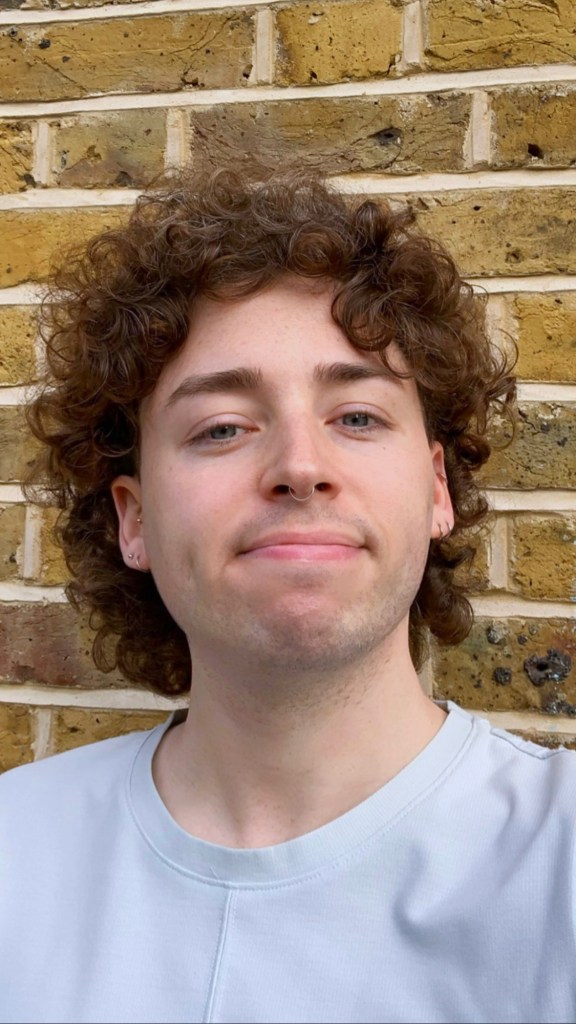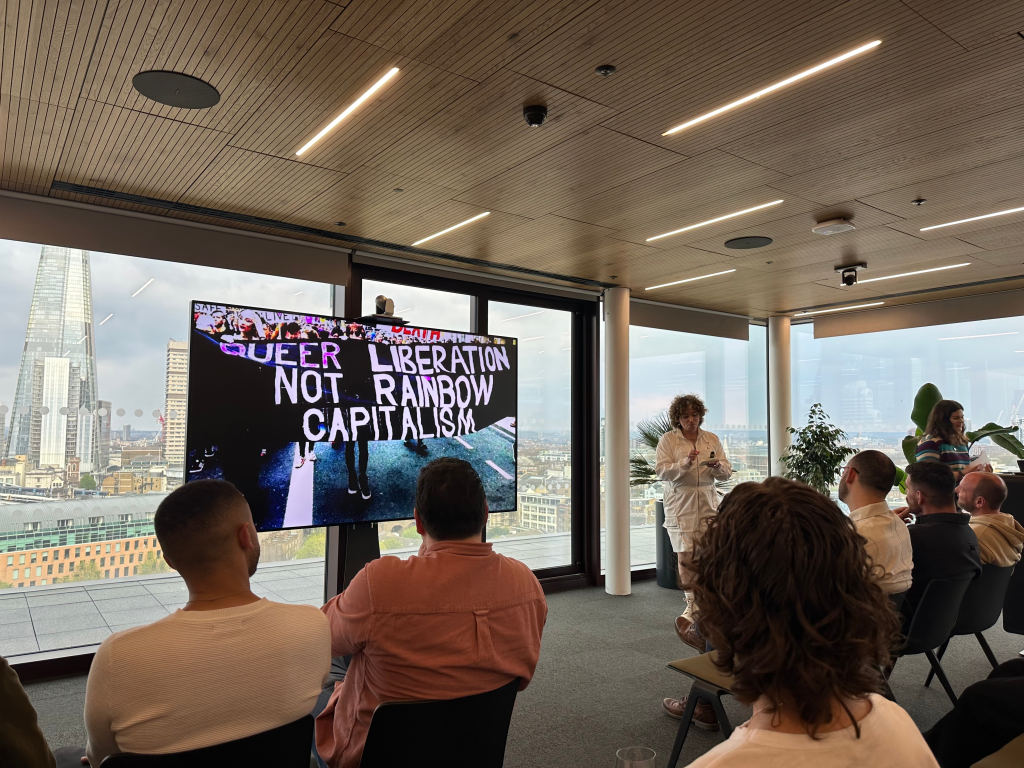Trans visibility in advertising, work and the clean slate phenomenon

The clean slate phenomenon is the idea that trans and non-binary people get to reintroduce themselves at work. (Envato/Getty Images/PinkNews)
Ahead of the PinkNews Trans+ Virtual Summit on Thursday (11 May), consultant and joint chief executive of Outvertising, Marty Davies, has shared their thoughts on why trans representation goes beyond commercial value and explains the “clean-slate phenomenon” of trans people starting new jobs as they begin their transition.
Visibility is a crucial element in promoting true inclusion in both work and society. When people see themselves represented in senior leadership, boardroom positions and advertising, they are encouraged to embrace their authentic selves.
Although social movements and advocacy have increased visibility for marginalised groups, such as the LGBTQ+ community, there is still a need for more progress because discrimination, racism, homophobia and transphobia remain prevalent.
The transgender and non-binary community currently faces misinformation and laws that fuel transphobia on social media, making them a political target. This highlights the necessity for increased trans visibility in advertising and the workplace, to combat discrimination and harassment.
For there to be representation in advertising, there needs to be representation within the industry. One person helping to lead the charge for more trans visibility is Marty Davies.
After years in the agency ecosystem, Davies founded their own consultancy and they are also the joint chief executive of Outvertising, a volunteer-led LGBTQ+ advocacy group for the advertising and marketing industries.

“We’re all driven by this common purpose: to make marketing and advertising completely LGBTQIA+ inclusive,” they tell PinkNews.
“It really gives people that feeling of community that you kind of need, especially for the smaller agencies when you may not find that queer community,” Davies continues. “We almost see ourselves as the industry’s LGBTQIA+ network if you like.”
‘Having an intention to move forward on this, is the point‘
Marty Davies
Ultimately, that empowerment within the trans and non-binary community will lead to greater visibility in advertising, both in the campaign and creative process.
Davies points out that it makes commercial sense for brands to include queer visibility in their advertising content. When it comes to trans visibility in advertising, a study by Channel 4 found that just 0.3 per cent of adverts featured a transgender person.
“If you’re just thinking of a business that wants to just shift product and wants people to be attracted to their products and services, then it works,” Davies states. “It works better than not having our representation.”
Davies does note, however, that along with the commercial incentive for inclusive advertising, brands need to match that energy when it comes to their employment practices, and diversity and inclusion policies.
“Thinking about your HR policies for the people [who] work there, thinking about your gender-neutral bathrooms, thinking about how you’re encouraging pronoun sharing, all of these things that are really important,” they say, acknowledging that inclusion is a journey and that “having a roadmap, having an intention to move forward on this, is the point.”

‘It doesn’t matter if the workplace itself is very inclusive, it’s still got all of that baggage of your previous identity‘
Marty Davies
In 2022, Davies co-founded Trans+ Adland, a grassroots community of trans, non-binary, gender non-conforming and intersex people intersecting the world of marketing and advertising.
“What’s really wonderful about it actually, is people trying out names, trying out pronouns in a space that’s really safe and welcoming,” they say. “It really makes people feel empowered in a way that I hadn’t expected.”
It was within this space that Davies began to notice a trend through the experiences shared by the group – a button that gives trans and non-binary people an opportunity to reintroduce themselves.
“The clean-state phenomenon, as we’re coining it, is essentially the act of leaving a place of work, and reintroducing yourself somewhere new and having a clean slate, sort of a reset button,” explains Davies.
At its core, the clean-slate idea is about making it easier to establish your identity immediately. It also eases the worry of not being included in projects or events due to the fear of people misgendering you or using the wrong pronouns.
“It doesn’t matter even if the workplace itself is very inclusive,” Davies declares. “It’s still got all of that baggage of your previous identity and the way you showed up being in that environment and around those people.”
Contemplating how their own experiences have shaped their career, Davies credits their ability to problem solve on the hyper-vigilance that sometimes accompanies people who haven’t come out yet.
“I feel like my ADHD [attention deficit hyperactivity disorder] and my queerness has allowed me kind of the bravery and difference of thought that is really important in our industry,” they say.
“I think that’s why a lot of queer people and neurodivergent people kind of gravitate towards advertising. It really does reward those that get easily bored, our common language is exciting new ideas and being queer and neurodivergent you have a lot to offer with different ways of thinking and challenging.”
Marty Davies will be speaking at the PinkNews Trans+ Summit, taking place on 11 May. Find out more about the day-long event and secure your place now.

